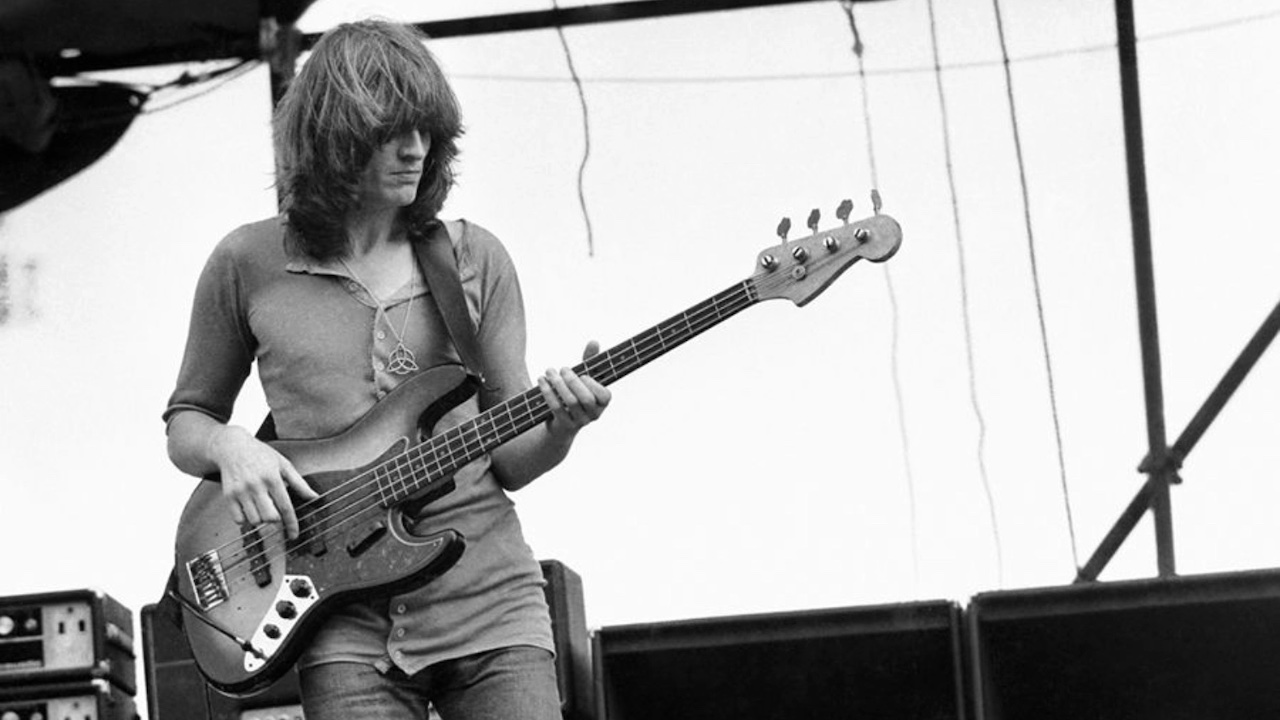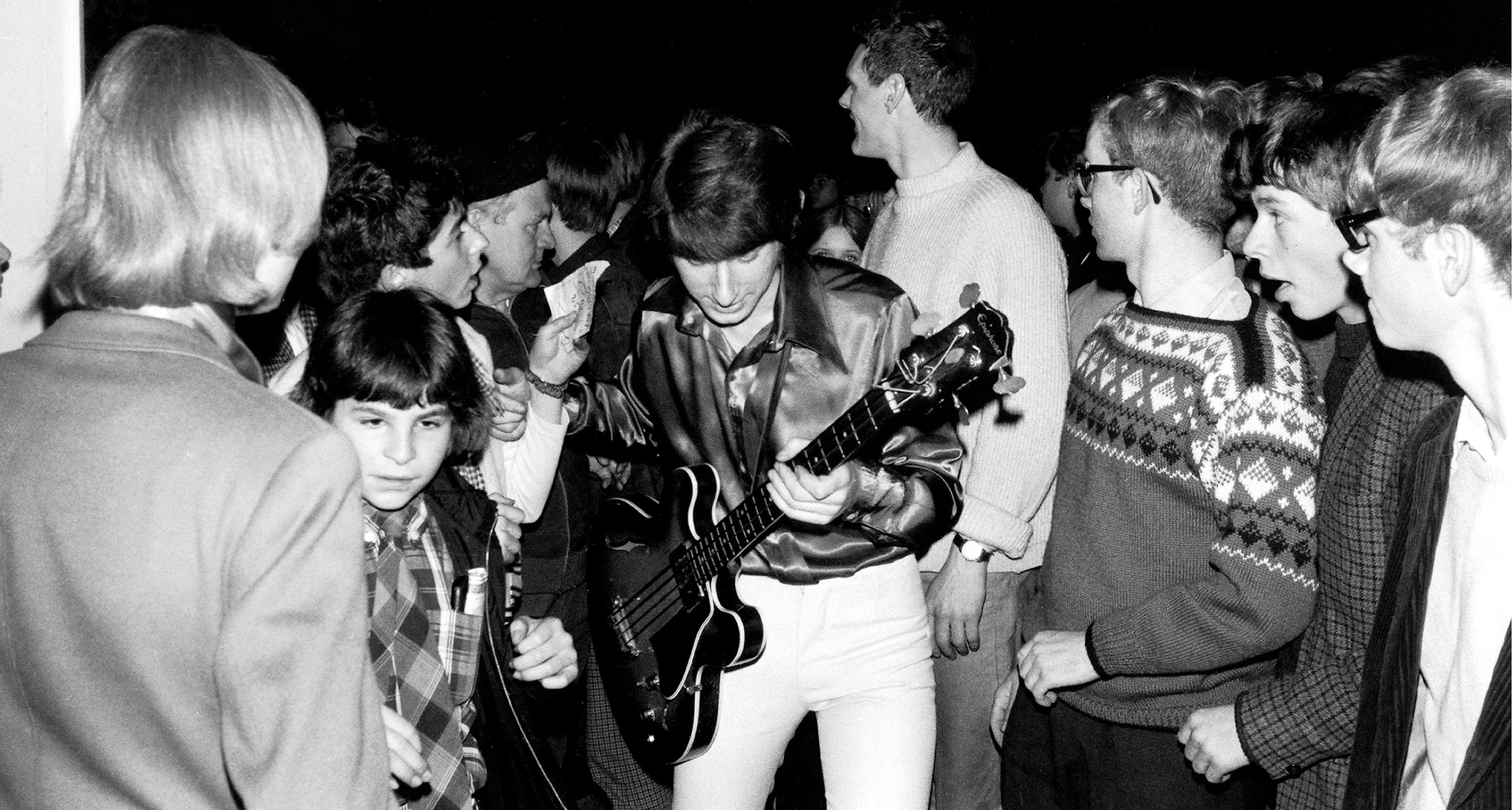“I wrote Black Dog on a train. There was a Muddy Waters song with a riff that never ended...” How John Paul Jones wrote Led Zeppelin's Black Dog
Despite Jimmy Page’s masterful guitar playing, Black Dog was written by Led Zeppelin's bass hero John Paul Jones

Armed with years of experience as a session bassist and arranger, John Paul Jones was the ultimate addition to Led Zeppelin, a rhythm and blues supergroup formed in 1968 by guitarist Jimmy Page, vocalist Robert Plant, and drummer John Bonham. Despite being overshadowed as a songwriter, Jones once penned a true Led Zeppelin classic while on a train ride home.
“I wrote Black Dog on a train,” said Jones in the February 08 issue of Bass Player. “My Dad taught me how to write musical notation without using manuscript paper – just with numbers and note values – and I wrote that riff on the back of a train ticket coming back from a rehearsal at Jimmy Page’s house.”
Like the earlier Good Times, Bad Times, Black Dog offers an insight into the rhythm section relationship that gave Led Zep their unforgettable groove. “It was originally all in 3/16 time,” Jones told Classic Rock, “but no one could keep up.”
Bonham, in particular, struggled with the song’s shifting rhythms. “I told Bonzo he had to keep playing four-to-the-bar all the way through. If you go through enough 5/8s it arrives back on the beat.”
According to biographer Dave Lewis, the call-and-response element of Plant's vocal was borrowed from Fleetwood Mac’s 1969 hit, Oh Well. Jones credited another source of inspiration. “There was a Muddy Waters song I was attracted to at the time. It was a rolling blues with a riff that never ended. I fancied writing something that did the same thing. Just when you think the riff is going to finish, it goes off somewhere else.”
In Led Zeppelin, Jones would often double guitar riffs on the bass. This filled out the sound, something he had become very used to doing. “I think you have to make a decision to support the guitar. Sometimes you can be really sparse and that will really highlight what the guitar’s doing. Or you can do a repeated pattern and build up intensity. In Black Dog I would leave a lot of space and Page could come out in those spaces. You’ve got to look at the whole picture.”
As this point in his career, Jones was predominantly playing fingerstyle, but he was equally adept at using a pick. “My preference is always to play fingerstyle, but I often had to play with a pick in the session days, so I got quite used to it. I can play Black Dog with my fingers, but it just sounded better with a pick. It just gives you different phrasing, and a more metallic, guitar sound. I didn’t see any reason not to swap one for another if the occasion demanded it.”
All the latest guitar news, interviews, lessons, reviews, deals and more, direct to your inbox!
Up until the mid-70s Jones was using a 1961 Fender Jazz Bass. He still occasionally uses this instrument today, but it was eventually retired from touring in 1975. Since then, John has favoured Manson instruments.
Led Zeppelin IV is available to buy or stream.

Nick Wells was the Editor of Bass Guitar magazine from 2009 to 2011, before making strides into the world of Artist Relations with Sheldon Dingwall and Dingwall Guitars. He's also the producer of bass-centric documentaries, Walking the Changes and Beneath the Bassline, as well as Production Manager and Artist Liaison for ScottsBassLessons. In his free time, you'll find him jumping around his bedroom to Kool & The Gang while hammering the life out of his P-Bass.



